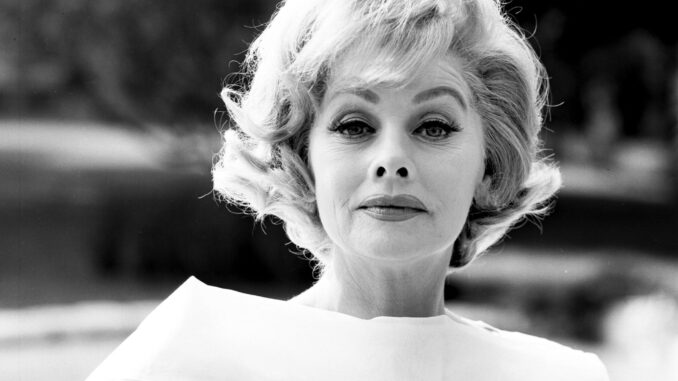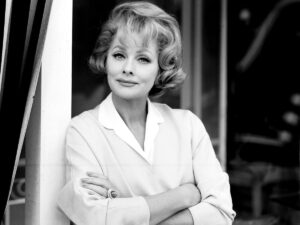
Introduction: Life After I Love Lucy
When I Love Lucy aired its final episode in 1957, millions of fans wondered: what would Lucille Ball do next? Known as one of the greatest comedic actresses of all time, Ball was at a crossroads. Instead of retreating into the shadows of Hollywood, she made bold moves that cemented her legacy as a trailblazing force in television. But what exactly did Lucille Ball do after bidding farewell to her iconic role? Let’s dive into her incredible journey post-I Love Lucy.
Lucille Ball: A Star Who Refused to Fade
Lucille Ball wasn’t the type to rest on her laurels. After the immense success of I Love Lucy, she didn’t just sit back and enjoy the fruits of her labor. Instead, she pushed herself into new territories, both on and off-screen.
The Transition to The Lucy-Desi Comedy Hour
After I Love Lucy ended, Lucille and her then-husband, Desi Arnaz, transitioned into The Lucy-Desi Comedy Hour. This spin-off show, which aired from 1957 to 1960, retained much of the original cast and humor. It served as a bridge between the iconic sitcom and the next chapter of Lucille’s career.
Behind the Scenes: Lucille as a Producer
Ball wasn’t just a talented actress; she was also a savvy businesswoman. She and Arnaz co-owned Desilu Productions, a powerhouse in the television industry. Under her leadership, Desilu produced hit shows like Star Trek and Mission: Impossible, reshaping the landscape of American television.

Breaking Barriers: The First Woman to Run a Major Studio
In 1962, Ball made history by becoming the first woman to head a major television studio. After buying out Arnaz’s share of Desilu Productions, she took full control. This bold move wasn’t just groundbreaking; it was a testament to her determination and vision.
A New Era for Desilu Productions
Under Ball’s leadership, Desilu expanded its influence. Her knack for identifying promising projects was unparalleled. The studio’s success under her guidance proved that she was more than just a funny face—she was a business powerhouse.
Returning to Comedy: The Lucy Show
Despite her business ventures, Lucille couldn’t stay away from the camera for long. In 1962, she returned to television with The Lucy Show. This series, which ran until 1968, showcased her comedic genius while allowing her to explore new dimensions of her beloved “Lucy” persona.
Why The Lucy Show Was a Hit
Unlike I Love Lucy, this show focused on Lucy Carmichael, a widowed single mother navigating life and work. The fresh premise resonated with audiences, proving that Ball still had her magic touch.
The Birth of Here’s Lucy
After The Lucy Show ended, Ball launched Here’s Lucy in 1968. This time, she shared the screen with her real-life children, Lucie Arnaz and Desi Arnaz Jr. The series ran for six successful seasons, further solidifying her as a television staple.
Family Matters: Working with Her Kids
Here’s Lucy offered fans a glimpse into the dynamic between Ball and her children. The on-screen chemistry added a heartfelt touch, making the show both hilarious and endearing.
Expanding Her Empire: Lucille Ball’s Film Ventures
Though she found tremendous success on television, Ball also dabbled in films post-I Love Lucy. She starred in movies like Yours, Mine and Ours (1968), proving her versatility as an actress.
Lucille Ball’s Approach to Film Roles
Ball carefully chose her film projects, ensuring they aligned with her strengths. Her roles often highlighted her comedic timing while allowing her to step outside the Lucy Ricardo persona.

The Legacy of Desilu Productions
Even after selling Desilu in 1967, its impact on Hollywood endured. The studio’s contributions to television remain unparalleled, and much of its success can be traced back to Ball’s leadership.
How Desilu Shaped Modern Television
From pioneering sci-fi shows to fostering innovative storytelling, Desilu laid the groundwork for future television hits. Ball’s role in this transformation cemented her as a visionary.
Lucille Ball’s Influence on Future Generations
Lucille Ball’s work didn’t just entertain; it inspired countless comedians, actors, and producers. Her fearless approach to breaking norms set a precedent for women in entertainment.
Lessons from Lucille’s Career
Ball’s journey offers valuable lessons in resilience, adaptability, and the importance of taking risks. She proved that success isn’t just about talent—it’s about persistence and innovation.
Lucille’s Later Years: A Quiet Yet Impactful Presence
In her later years, Ball took a step back from the limelight but remained an influential figure in Hollywood. She made occasional guest appearances and continued to support the arts.
Her Lasting Impact on Hollywood
Even decades after her passing, Lucille Ball’s contributions to television and comedy remain unmatched. Her work continues to inspire, making her a timeless icon.
Conclusion: Lucille Ball’s Remarkable Post-I Love Lucy Journey
Lucille Ball’s life after I Love Lucy was nothing short of extraordinary. From running a major studio to starring in successful TV shows, she proved that her talents extended far beyond the beloved sitcom. Her legacy as a pioneer, innovator, and comedic genius remains a guiding light in the entertainment world.
FAQs
1. What happened to Lucille Ball after I Love Lucy ended?
After I Love Lucy, Ball transitioned to The Lucy-Desi Comedy Hour, took over Desilu Productions, and starred in new shows like The Lucy Show and Here’s Lucy.
2. Did Lucille Ball and Desi Arnaz work together after I Love Lucy?
Yes, they worked together on The Lucy-Desi Comedy Hour before their personal and professional partnership ended.
3. What were Lucille Ball’s biggest achievements post-I Love Lucy?
She became the first woman to run a major television studio, launched successful shows, and produced iconic series like Star Trek.
4. How did Lucille Ball influence future generations?
Ball broke barriers for women in entertainment, inspired comedians, and revolutionized television production.
5. Is Desilu Productions still active today?
While Desilu Productions was sold in 1967, its legacy lives on through the shows it produced and its impact on television history.